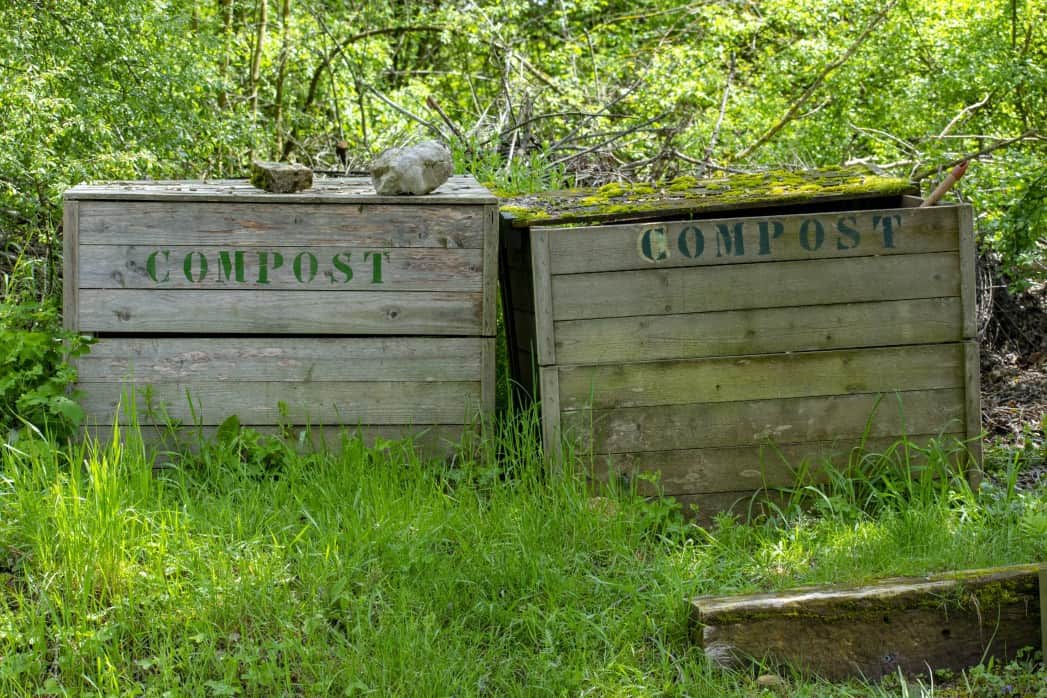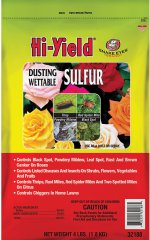My soil is currently at a ph level of 8. If possible, how do I organically lower the pH level to get the soil right for my potatoes by early March?
You are using an out of date browser. It may not display this or other websites correctly.
You should upgrade or use an alternative browser.
You should upgrade or use an alternative browser.
Potato - Organically lower pH level
- Thread starter Alwaysalright231
- Start date
- Joined
- Feb 2, 2014
- Messages
- 11,488
- Reaction score
- 5,591
- Location
- La Porte Texas
- Hardiness Zone
- 8b
- Country

Alkaline soils usually affects potatoes by restricting the uptake of phosphorus. Organically, the best way I know of to stop this is to apply copious amounts of bone meal to the soil before planting and during growth. Also, coat your cut seed potato with the meal and wood ash. Bone meal is NOT fast acting so do it now. I believe you are in a Blackland Prairie Soil area, a heavy clay soil. By adding a lot of compost and manures will also lower your Ph and this will be a longer acting remedy than the bone meal, but with either or both you will still have to amend the soil each year.
Last edited:
Meadowlark
No N-P-K Required
- Joined
- Feb 5, 2019
- Messages
- 2,698
- Reaction score
- 2,250
- Location
- East Texas
- Hardiness Zone
- old zone 8b/new zone 9a
- Country

Additionally, Sulphur is an excellent soil amendment to lower ph for potato growing. I always dust my seed potato cuts in sulphur to aid ph and prevent rotting. I would be very careful about using wood ash depending on what type of wood as it may actually be highly alkaline and raise ph. If you use manure, be sure it is composted/aged and free of any contaminants.
I always plant my potatoes mid-February here, but maybe early March is ok for Pflugerville? Chuck would certainly know.
I always plant my potatoes mid-February here, but maybe early March is ok for Pflugerville? Chuck would certainly know.
Attachments
- Joined
- Oct 8, 2017
- Messages
- 6,899
- Reaction score
- 5,070
- Location
- Birmingham, AL USA
- Hardiness Zone
- 8a
- Country

One of the reasons we have 5.0 pH clay is that we have so much rain that "liming agents" are simply washed away over time. The sulfur works but be aware too much at once is not the way to do it, and 6 months is a reasonable checkup interval.
Bone meal and wood ash are alkalinizing agents, sulfur is an acidifying agent.
I'm not sure why this wasn't pointed out earlier. When attempting to acidify soil, sulfur is not used "additionally" to bone meal and wood ash. It is used "instead of".
I'm not sure why this wasn't pointed out earlier. When attempting to acidify soil, sulfur is not used "additionally" to bone meal and wood ash. It is used "instead of".
Last edited:
For what it's worth, I've read that regular application of garden compost will lower ph level. Obviously not drastically enough for your current needs, but it might be worth looking into whether you can maintain a lower ph naturally with annual application of garden compost. I tried to find the source of this info (couldn't find it) but whilst searching I found this article which you might find interesting. This explains that rather than lowing ph level it 'buffers' it, allowing the soil to behave as if it's a lower ph level. It'll take me a few more reads to get my head around it properly!

 backyardsidekick.com
backyardsidekick.com

Will Compost Lower pH? How Compost Can Change Soil pH
A soil pH between 6 and 7 is most optimal for general plant growth. Due to this, many gardeners and farmers in dryer climates struggle to find ways to lower their soil pH to fall
- Joined
- Oct 8, 2017
- Messages
- 6,899
- Reaction score
- 5,070
- Location
- Birmingham, AL USA
- Hardiness Zone
- 8a
- Country

Compost will both lower and raise the pH level. Compost itself has worked itself neutral. The direction depends on your soil. It also depends on the mass of your compost in the relevant depth of your garden bed if you dig it in.For what it's worth, I've read that regular application of garden compost will lower ph level. Obviously not drastically enough for your current needs, but it might be worth looking into whether you can maintain a lower ph naturally with annual application of garden compost. I tried to find the source of this info (couldn't find it) but whilst searching I found this article which you might find interesting. This explains that rather than lowing ph level it 'buffers' it, allowing the soil to behave as if it's a lower ph level. It'll take me a few more reads to get my head around it properly!

Will Compost Lower pH? How Compost Can Change Soil pH
A soil pH between 6 and 7 is most optimal for general plant growth. Due to this, many gardeners and farmers in dryer climates struggle to find ways to lower their soil pH to fallbackyardsidekick.com
After several reads I think I'm starting to grasp that!!Compost will both lower and raise the pH level. Compost itself has worked itself neutral. The direction depends on your soil. It also depends on the mass of your compost in the relevant depth of your garden bed if you dig it in.
So here's a question
a) Will compost reduce the effectiveness of supplements like sulfur or lime?
b) Will compost neutralize very acidic/alkaline soil (such as that of the OP) over time - so if he just put compost in his soil would it in time become neutral?
My natural garden soil is clay, and slightly acidic. My compost topped raised beds tend to be the same. I discovered recently that potatoes grown in containers in shop bought compost were slightly alkaline.
Goodness knows what my blueberries are doing - I keep potting them up in eracious (sp?) compost, adding sulphur chips. But they're hell bent on going back to neutral or even slightly alkaline.
- Joined
- Oct 8, 2017
- Messages
- 6,899
- Reaction score
- 5,070
- Location
- Birmingham, AL USA
- Hardiness Zone
- 8a
- Country

After several reads I think I'm starting to grasp that!!
So here's a question
a) Will compost reduce the effectiveness of supplements like sulfur or lime?
b) Will compost neutralize very acidic/alkaline soil (such as that of the OP) over time - so if he just put compost in his soil would it in time become neutral?
My natural garden soil is clay, and slightly acidic. My compost topped raised beds tend to be the same. I discovered recently that potatoes grown in containers in shop bought compost were slightly alkaline.
Goodness knows what my blueberries are doing - I keep potting them up in eracious (sp?) compost, adding sulphur chips. But they're hell bent on going back to neutral or even slightly alkaline.
a) Will compost reduce the effectiveness of supplements like sulfur or lime?
Yes but better understood as 300 lbs of compost will effect 1 lb of this or that, because, well its 300lbs of neutral material. Mass matters in chemistry. It is funny that chemists also have Moles*!
b) Will compost neutralize very acidic/alkaline soil (such as that of the OP) over time - so if he just put compost in his soil would it in time become neutral?
No. And yes, minorly. What happens to make clay acid is simply humidity and rain. Alkaline clays are typically in a less humid area. The liming agents get leached out and you fight that by putting out more on top and letting the rain do its thing. But again, 27 square feet of topsoil is easily 2000 lbs and clay can be 2x what loam weighs, so a few hundred lbs of compost will only effect the thing but so far. You end up planting in the compost to some degree and not just for its pH value. Thats why the concentrates are used, the liming effect (which is usually on a chart somewhere) is far higher for something like the dolomitic lime we use on our acid clay.
*The mole is the amount of substance of a system which contains as many elementary entities as there are atoms in 0.012 kilogram of carbon 12; its symbol is “mol”. -Wiki
Last edited:
Extremely helpful. Thank you.a) Will compost reduce the effectiveness of supplements like sulfur or lime?
Yes but better understood as 300 lbs of compost will effect 1 lb of this or that, because, well its 300lbs of neutral material. Mass matters in chemistry. It is funny that chemists also have Moles*!
b) Will compost neutralize very acidic/alkaline soil (such as that of the OP) over time - so if he just put compost in his soil would it in time become neutral?
No. And yes, minorly. What happens to make clay acid is simply humidity and rain. Alkaline clays are typically in a less humid area. The liming agents get leached out and you fight that by putting out more on top and letting the rain do its thing. But again, 27 square feet of topsoil is easily 2000 lbs and clay can be 2x what loam weighs, so a few hundred lbs of compost will only effect the thing but so far. You end up planting in the compost to some degree and not just for its pH value. Thats why the concentrates are used, the liming effect (which is usually on a chart somewhere) is far higher for something like the dolomitic lime we use on our acid clay.
*The mole is the amount of substance of a system which contains as many elementary entities as there are atoms in 0.012 kilogram of carbon 12; its symbol is “mol”. -Wiki
Ask a Question
Want to reply to this thread or ask your own question?
You'll need to choose a username for the site, which only take a couple of moments. After that, you can post your question and our members will help you out.
Forum statistics
Latest Threads
-
Marigolds
- Started by big rockpile
-
How to properly save seed from a strawberry to cold stratify and sow
- Started by texc16195
-
Fruit and vegetables seeds
- Started by Danielnoble01
-
Happy Saint George's Day
- Started by zigs
-
Noob at growing lettuce, 1 is dying, dunno why
- Started by 2jjg4
-
Indeterminate Cheapness of Tomatos?
- Started by gunslingor
-
Summer Crops
- Started by Sas02
-
Mushrooms
- Started by Esther Knapicius
-
Old Westbury Garden Pine Tree identification
- Started by CLIVIAJOHN


